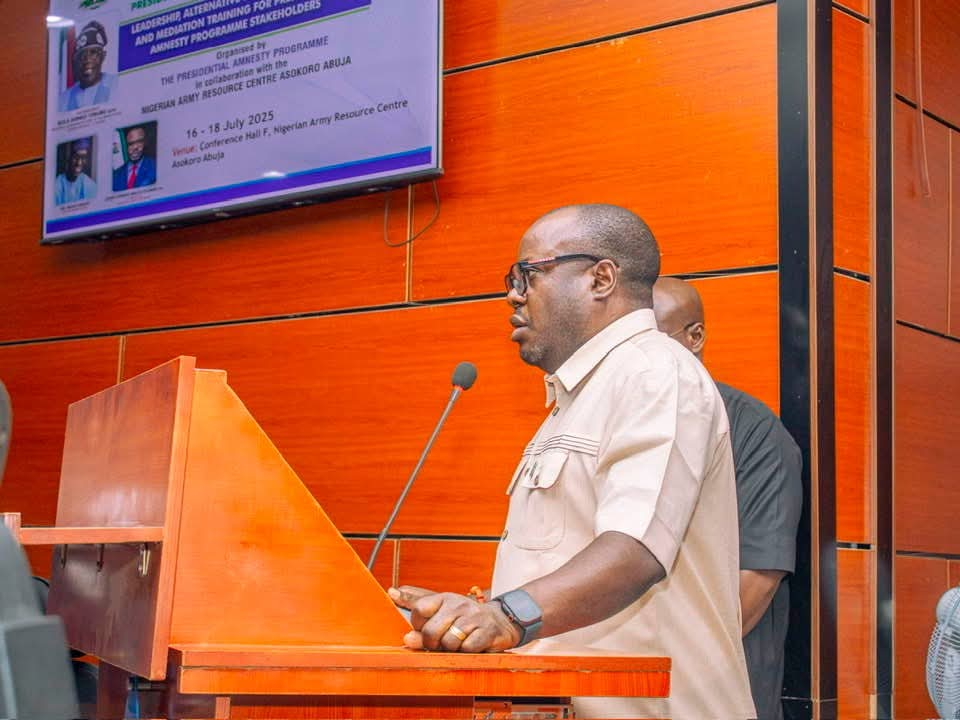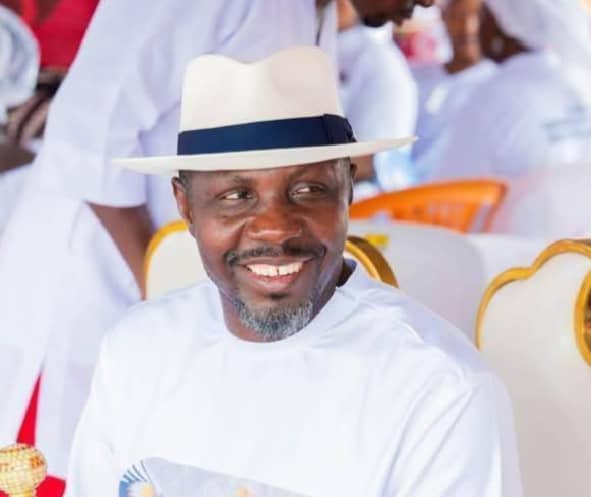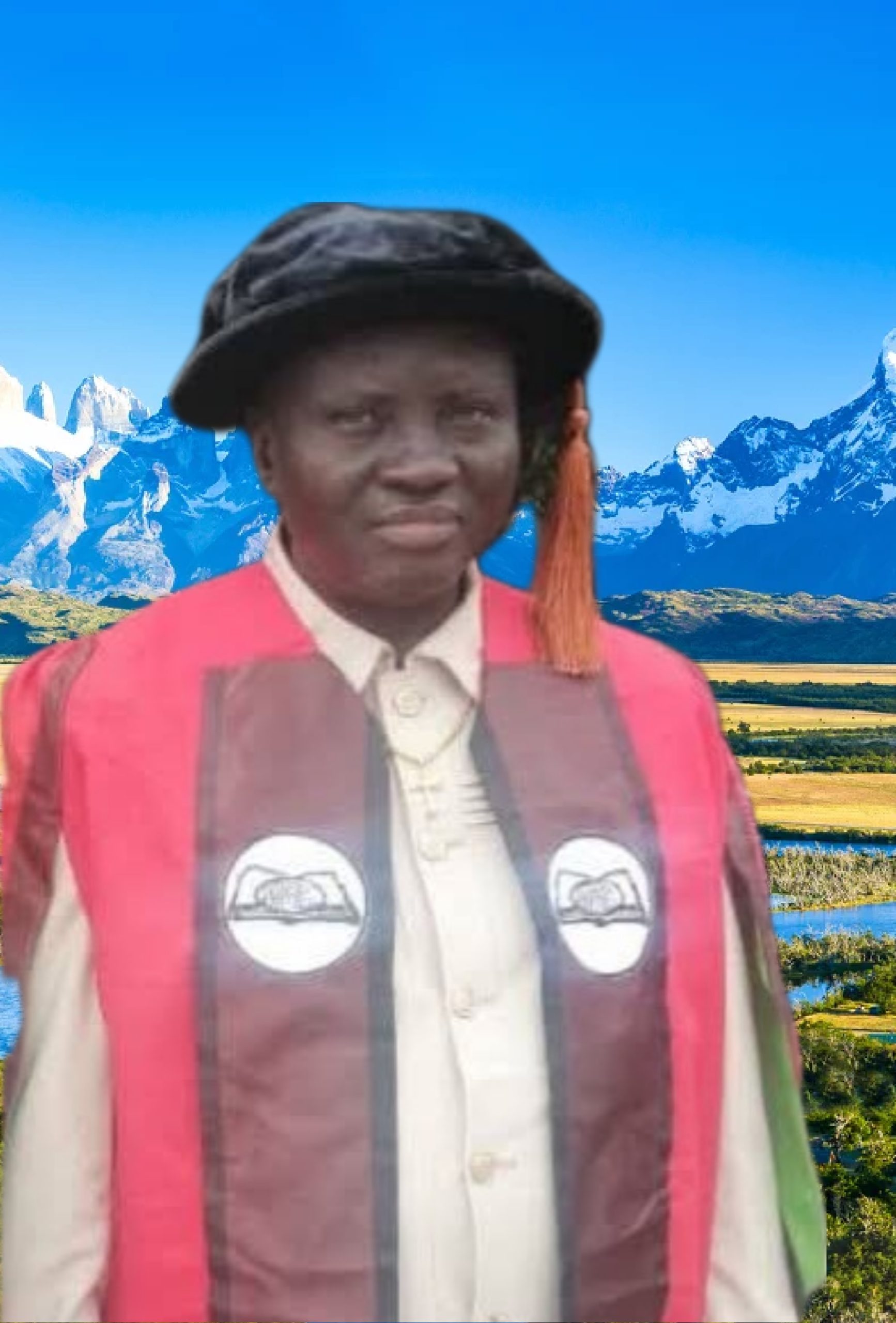Columns
I Fully Support First Lady on Backyard Farming

I Fully Support First Lady on Backyard Farming

By Dele Sobowale
“We must therefore not shirk from accusing our friends, or praising our enemies, nor need we be afraid of praising or blaming the same people at different times; since, it is impossible that the men and women who are engaged in public affairs should always be right; and unlikely they should always be in the wrong. We must therefore detach ourselves from the actors and actresses in our story, and apply to them only such statements and judgments as their conduct deserves.” – Polybius, c200-118 BC.
Seldom have I felt called upon to defend a public official, especially someone as highly-placed as the First Lady of Nigeria or State. Invariably, they have officials who are paid to defend them – if and as considered necessary.
But, there is an exception to every rule. In fact, this defence of Mrs Remi Tinubu, would be the second time that I would be writing a rejoinder to an article highly critical of the President’s wife. The first was in support of late Mrs Maryam Babangida of blessed memory; the wife of former President Ibrahim Babangida. She had initiated the Better Life For Rural Women Programme, BLFRW, while Nigerians were grappling with the pains of adjustment to the Structural Adjustment Programme, SAP. The mission of the Better Life project was to empower rural women who were responsible for about 70 per cent of food produced by small scale farmers.
The women lacked, and still lack, access to land, credit, good roads for evacuation of their farm products and support from the states. Mrs Babangida’s idea was simple. The only way to ensure sustainable food security was for governments to remove all these impediments.
She persuaded her husband, who supported the idea and funded it. She then organised the wives of the Military Governors; who in turn were instructed to mobilise the wives of the Local Government Chairmen in their states and who were also expected to organise the women in the rural areas of each council. For the first time in Nigerian history (and sadly the last time), rural women were no longer working alone; they became part of an army of food producers – with a “General” commanding the army.
I was in the North at the time; and most of my time was spent in rural areas. That made me an eye-witness unlike all the journalists/columnists commenting on the programme from their air-conditioned offices in Lagos, Ibadan and Kaduna.
As far as I was concerned, the usually know-nothing commentators in the newspapers disgraced journalism on that occasion.
To begin with the programme was renamed Better Women For Rural Life; because of the uniform the First Ladies wore on the day the programme was launched at the Federal level and at each state launching.
As far as the Lagos/Ibadan media was concerned, the urban-based ladies were on a jamboree – led, of course, by Mrs Babangida. Nothing could be further from the truth. In actual fact, nothing less than 530 rural roads were built nationwide to link villages to the nearest towns and which greatly reduced post-harvest losses reaching up to 40 per cent of perishable foods.
All these were not reported by journalists who disliked IBB; and could find nothing commendable in the wife’s programme. A particularly malicious article got me to send a rejoinder to correct the impression; at a time when I had not met IBB or his wife.
As far as I can recollect, Better Life was a remarkable success; and no initiative by all the governments – Federal and States – has come close. Many urban dwellers should still be able to remember the weekly Better Life mini-markets selling food stuff cheaper than regular markets. That was the reason this second rejoinder has become necessary.
As it was in the beginning, so it shall be!
“It is the part of a king or queen to do good for his or her subjects and be maligned for it. – Alexander the Great, 356-323 BC, Vanguard Book of Quotations, VBQ, P. 113.
Two weeks ago, one of my favourite columnists took on Mrs Tinubu – ostensibly on her efforts to encourage urban, backyard and balcony farming. It was a brutal attack; which carried with it the possibility of leading to Nigeria throwing out the baby with the bath water on food production. Careless readers might read into that angrily written article that the columnist is against the idea of urban farming which the current First Lady is trying to promote. I sincerely hope not; and it is my hope that Mrs Tinubu would not be discouraged by the attack — which, in my view, is undeserved for a simple reason; I am a professional farmer and my experience on various aspects of food production enables me to determine what is positive intervention that all the city-based columnists put together. I am afraid we might be repeating the mistake we made with Mrs Babangida by attempting to visit our frustrations with the FG on Mrs Tinubu. We would be cutting our noses to spite somebody’s face.
“Farming would be mighty easy, if it is done with biros and computers in a cozy office.” – US President James Madison, 1751-1836.
For some reasons only the two of them can explain, but, most likely based on the motherly instinct to feed their children, the two mothers chose to intervene on increasing food production. Mrs Babangida addressed the hurdles rural women must scale to produce and helped to remove some of them permanently – like the rural roads constructed.
In the 1990s, the smallest girl could go to farm, far removed from the nearest tarred road without fear. Today, two new developments have intruded in our lives calling for a fundamental change in the way we produce food in Nigeria.
Annual floods in the river valleys of Nigeria have rendered farming in low-lying areas more perilous. We need to move upland. Bandits, herdsmen and other hoodlums have been driving farmers off the land since Buhari became President. With rural areas endangered, it is imperative to move more of the food production to urban and safer areas.
Mrs Tinubu has rightly pointed out what should have been obvious to the Federal and States Ministries of Agriculture years ago. Conventional farming policies have failed us and are increasing multidimensional poverty in Nigeria rapidly.
Contrary to the opinions of most of our erudite columnists, who would not know what to do with a hoe and cutlass, if given a parcel of land, the two women never pretended to be experts on farming, neither was it their intention to do the work themselves. Their role was that of a catalyst in a chemical reaction – which makes things happen without undergoing a change itself.
The First Lady in every nation is always in position to influence events – for good or ill. I honestly believe that objective analysts and commentators should first ask the question: will this initiative solve or add to problems? We should support it if it will help to solve problems and oppose it if it will create more problems.
Mobilising people, even those burdened by society, is not always easy. That is why the masses are never revolutionary. Asking urban dwellers to leave their comfort zones and start producing food will amount to moving mountains – which must be moved for our own sake. Only someone with clout can do it.
We should support this effort for our own sake. The rural areas are tired and besieged. They cannot feed us anymore.
Source: Vanguard News
Columns
Chief Denis Otuaro, the Guiding Star of PAP

By: Professor Binebai
The Niger Delta has found a beacon of hope in Chief Dr. Dennis Otuaro, a leader of unimpeachable integrity, courage, and vision. As the helm of the Presidential Amnesty Programme (PAP), he has emerged as a champion of transformation, inspiring a region and a nation with his unwavering commitment to empowerment and progress.
In the realm of Nigerian leadership, there are those who leave an indelible mark on the sands of time, and Chief Dr. Dennis Otuaro is one such luminary. As the helm of the Presidential Amnesty Programme (PAP), he has etched a narrative of hope, redemption, and triumph, illuminating the path for the people of the Niger Delta. This tribute is a celebration of his extraordinary leadership, vision, and unwavering commitment to the cause of empowering the youths and transforming the region.
Chief Denis Otuaro’s stewardship of the Presidential Amnesty Programme (PAP) has indeed been a renaissance, a majestic sunrise after a long, dark night, as he infuses the initiative with the radiance of a new dawn.
Like the mythical Anansi, the wise and cunning spider of West African folklore, Otuaro’s leadership has woven an intricate web of hope and opportunity, capturing the challenges of the Niger Delta and transforming them into a rich mosaic of promise and progress. His vision, akin to that of the venerable Oracle of Delphi, has deciphered the complexities of post-conflict reconstruction, guiding the demobilised youths through the labyrinth of uncertainty, and into the bright light of empowerment and redemption.
Otuaro’s journey has been sustained by a resolute commitment to the cause, his leadership style a masterful blend of courage, wisdom, and compassion. His tenure has been marked by a symphony of progress, as the PAP, under his guidance, has orchestrated a harmonious balance of pacifism and pragmatism, transforming the region into a veritable Garden of Eden.
Like Athena, the Greek goddess of wisdom, Otuaro wields the power of transformation, his touch turning the arid landscape of despair into a lush oasis of hope and prosperity. His leadership has become a byword for sagacity, a testament to the transformative power of vision, courage, and compassion.
In the pantheon of Nigerian leaders, Otuaro’s name shall be etched alongside the greats, his legacy a shining testament to the indomitable human spirit, as he continues to weave a new narrative of hope, redemption, and triumph for the people of the Niger Delta.
The Niger Delta has found a leader of repute, a leader of courage, a leader of transformation, a leader of goodwill in the PAP. Let egocentric economic buccaneers and demonic agencies stop their campaign of calumny against this leader of glory.
To those who seek to undermine his efforts, we say: let envy and malice be silenced! Let the progress of the Niger Delta be the benchmark for greatness! Let Otuaro’s leadership be the inspiration for a new generation of leaders!
Columns
A Legendary Legacy: The Enduring Odyssey of High Chief (Dr.) Government Oweizide Ekpemupolo

By: Professor Ben Binebai
In the realm of Nigerian leadership, one name resonates with mythical significance – High Chief (Dr.) Government Oweizide Ekpemupolo, affectionately known as Tompolo. Born on 12 April 1971, in Warri, Delta State, Tompolo has etched his name in the annals of history, leaving an indelible mark on the Niger Delta region. As a former militant commander of the Movement for the Emancipation of the Niger Delta (MEND) and chief priest of the Egbesu deity, he has navigated the treacherous waters of war and peace, leveraging his remarkable journey to bring succour and development to his people.
Tompolo’s metamorphosis from a militant leader to a peace advocate is a testament to his unwavering commitment to the progress of the Niger Delta. His decision to embrace the Amnesty Programme in 2009 marked a turning point, as he laid down arms and picked up the mantle of transformation. Today, he is revered as a hero, celebrated for taming the turbulent waters of the Creek boys and settling major political crises in the region. By putting the Ijaw image on the Nigerian map, Tompolo has redefined the narrative, showcasing the rich cultural heritage and resilience of the Ijaw people to the world.
A nationalist and statesman emerging from the boiling pot of agitation in the Niger Delta, Tompolo has consistently demonstrated his commitment to the development and progress of his people. His agency operates in close collaboration with the government, working tirelessly to implement projects and initiatives that benefit the Niger Delta region. His leadership style is characterised by quiet strength, strategic thinking, and an unwavering commitment to the progress of his people. His efforts have earned him recognition and accolades from various quarters, solidifying his position as a dependable pillar of the Ijaw nation.
As the last voice of the Ijaw nation, Tompolo’s legacy continues to inspire hope and progress for generations to come. With institutions established for national economic stability and prosperity, his impact will be felt for years to come. Tompolo’s story serves as a beacon of hope and resilience, inspiring his people to strive for greatness.
God bless this emergent leader of the Ijaw nation.
Columns
YOUNA: WARRI CRIES FOR PEACE AND JUJUSTICE

By: Ben Binebai
In the Niger Delta region of Nigeria, a city cries out for peace, justice, and unity. Warri, a land of rich cultural heritage and economic significance, has been plagued by recurring crises, sparked by provocative actions and claims of ownership by the Itsekiri group. The cry of Warri is a call to action, a reminder that our diversity is a strength, not a weakness, and that our common humanity is worth fighting for.
The Ijaw, Urhobo, and Itsekiri communities have coexisted in Warri for centuries, sharing a rich cultural heritage and a deep connection to the land. Occasionally uniting but deeply disunited because power and hegemony have often overshadowed their shared humanity, the people of Warri yearn for a future where their differences are celebrated, and their commonalities are the foundation of their unity. Warri’s significance extends beyond its current boundaries, as it has been a hub of economic and cultural activity for centuries. Before 1952, Warri was a thriving commercial centre, with the Ijaw, Urhobo, and Itsekiri communities contributing to its growth and development.
The city’s strategic location and access to the Niger Delta’s vast resources made it an attractive location for trade and commerce. Understanding Warri’s rich history and cultural heritage is essential to finding a lasting solution to the crisis.
It is time for truth to prevail to offer a lasting solution to the Warri crisis. The canoe of godfatherism should be withdrawn for the rule of law and for peace and progress to triumph.
The lie of exclusive ownership of Warri resists termination due to several factors, including:
Outdated court judgments: The Itsekiri establishment continues to rely on outdated court judgments, such as the 1925 judgment, to support their claim of ownership, despite subsequent judgments repudiating its validity.
Lack of political will: Successive governments have failed to address the problem and take the right and just decision, allowing the crisis to persist.
Absolutist claims: The Itsekiri claim is absolutist, while the Urhobo and Ijaw claims are limited, recognising ownership of portions of Warri by other communities.
Historical narratives can be deeply ingrained*: People’s understanding of their history and identity can be shaped by long-standing narratives, making it hard to change their perspectives.
Emotions and biases can override facts: When emotions and biases are strongly tied to a particular narrative, people may resist changing their views, even in the face of contradictory evidence.
Power dynamics can influence narrative control: Those in positions of power may use their influence to shape and maintain certain narratives, making it harder to correct lies and misconceptions.
Moreover, leadership plays a crucial role in shaping the future of Warri. As the saying goes, “When leaders refuse to embrace sacrifice, society dies.” Leaders who prioritise the greater good, make tough decisions, and invest in the future can help build a more harmonious and prosperous society. It is time for the leaders of Warri to put the needs of their people first and work towards a brighter future.
The cry of Warri is a call to action, a reminder that our diversity is a strength, not a weakness. Let us work towards a brighter, more harmonious future, where the beauty of our differences is celebrated, and our common humanity is cherished. May the cry of Warri be heard, and may we rise to the challenge of building a better tomorrow for all its people.
